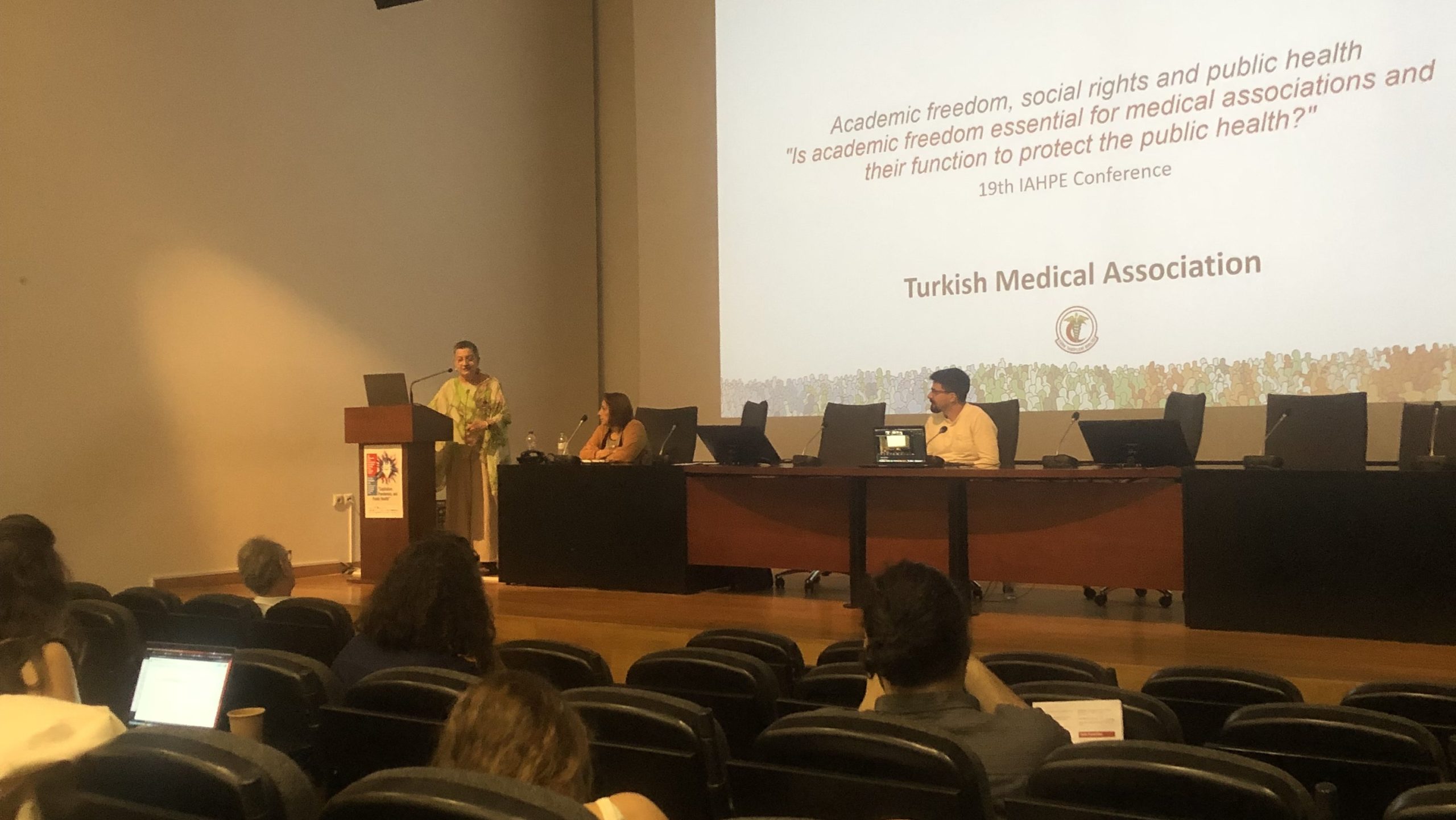Public health experts with a commitment to left and people-centered approaches find themselves increasingly facing maltreatment and persecution. While violence against health workers in occupied territories and under authoritarian regimes has long been a difficult reality, a newer threat has emerged in the form of corporate influence over universities. In the face of these challenges, a persistent commitment to academic freedom which is engaged in public health practice and international solidarity emerges as a potential response, concluded a panel at the recent International Association of Health Policy Europe (IAHPE) conference.
The panel, featuring Shatha Odeh and Şebnem Korur Fincancı, both of whom faced incarceration for their work, shed light on the harsh realities faced by critical public health experts. Odeh, who spent a year imprisoned by the Israeli forces, highlighted the fragmented state of healthcare delivery for Palestinians due to the ongoing occupation.
In Palestine, the occupation has resulted in alarmingly low ratios of health workers, with only 1.12 doctors and 1.7 nurses per 1000 people, a situation that raises serious concerns. Unfortunately, the systemic discrimination faced by Palestinians continues to be largely ignored by Global North countries, leading to deteriorating health indicators and a distressing number of Palestinian deaths.
Odeh stressed the urgent need for the West to take a stronger stance in protecting the right to health in occupied territories. She called for more open discussion about the impact of occupation and conflict on the health of the Palestinian population, and support for health workers in Palestine.
Watch | 11 months in Israeli prison: Shatha Odeh’s struggle for basic rights
Şebnem Korur Fincancı highlighted the state of health care access in Kurdish areas of Turkey. In these areas, the repression has at times resulted in people being confined to their homes for over 70 days. “Imagine what it means for your mental and physical health if you are not able to leave your house for so long,” said Korur Fincancı.
The visibility of health conditions in countries like Palestine and Turkey also depends on the determination of health workers and activists in the Global North to put them in the spotlight. However, even academic institutions in high-income countries that advocate for internationalist approaches and solidarity are facing their own crackdown on academic and activist freedom. This encroachment is driven by corporate entities taking control over universities and other academic institutions.
Read|Turkish Medical Association Dr. Şebnem Korur Fincancı declared guilty but released from jail
The closure of Flinders University’s Southgate Institute for Health, Society, and Equity in Australia serves as an example of this trend, as explained by Fran Baum, the institute’s former director. Flinders’ convergence with the corporate sector, including major consulting firms, made it increasingly challenging to pursue research on social and commercial determinants of health. Overnight, Baum and her colleagues transitioned from distinguished to “extinguished health experts,” as she put it.
Today, Australia’s higher education system bears the scars of its ties to corporate entities, with profit often taking precedence over research that could benefit society. Partnerships with consulting firms have risen up to AUD $2 billion, with university administrators earning salaries comparable to those in the corporate world. The fear of corporate backlash and job loss has silenced those who would otherwise be at the forefront of public health advocacy.
Baum stressed that the only way out of this predicament is through unity, including the support of trade unions, to push back against corporate dominance. This was echoed by Dimitris Kivotidis, another commenter at the panel, who called for the re-centering of the radical need encompassed in our health and health education systems. At the moment, Kivotidis said, the radical need is equalized to profit. “But it could be reinterpreted as a need for human flourishing,” Kivotidis said, reaffirming the space for academic and activist freedom as well as their intersections.
People’s Health Dispatch is a fortnightly bulletin published by the People’s Health Movement and Peoples Dispatch. For more articles and to subscribe to People’s Health Dispatch, click here.





